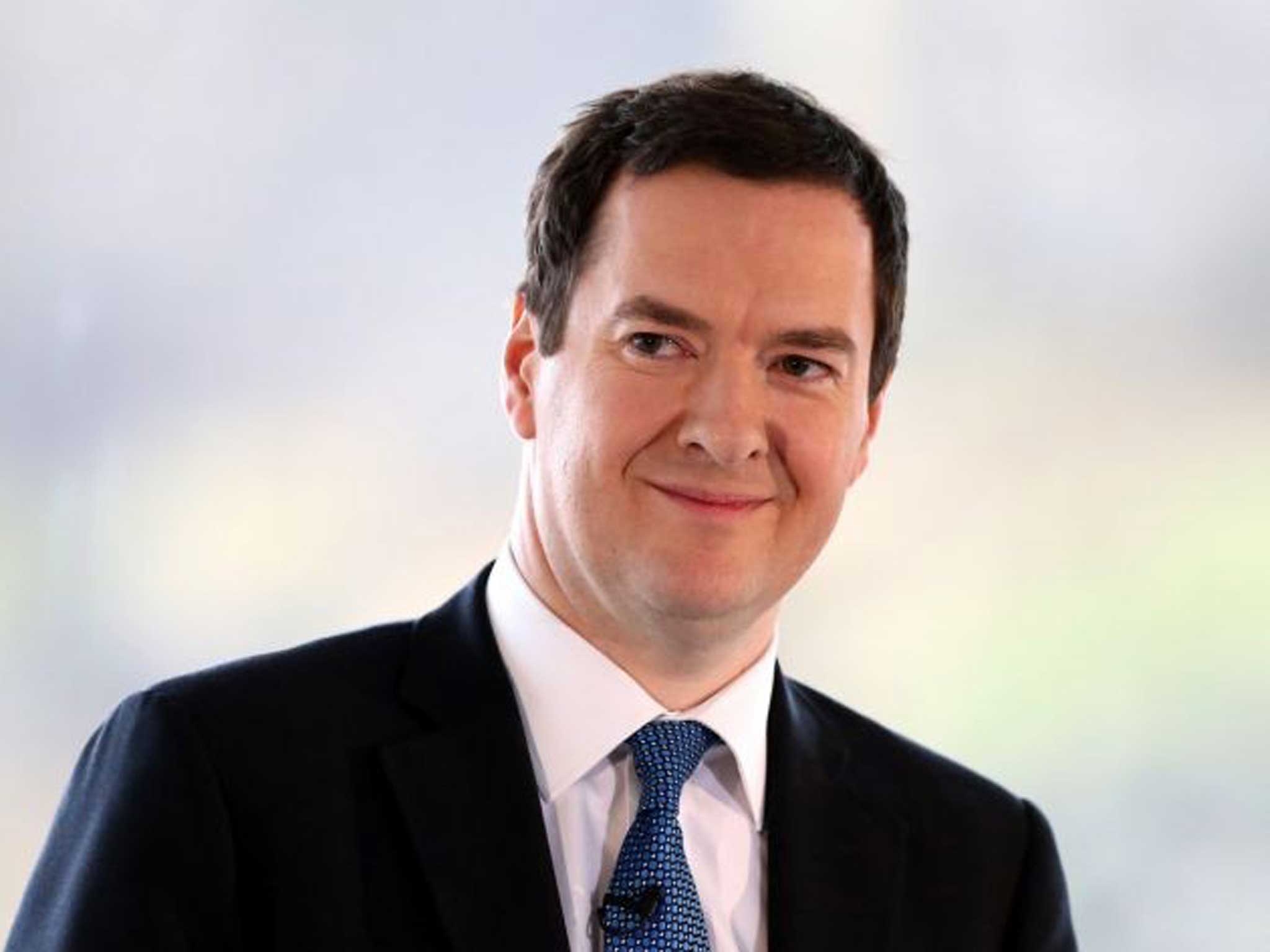George Osborne's on the up, but there's a flaw in his plan
His standing with the public is dismal, but his reputation grows as the economy does


Someone has to win the next election. This is the quality of political analysis that I know you have come to expect from this column. At some point after 7 May 2015, probably within five days – that was how long it took last time – either David Cameron or Ed Miliband will probably emerge as prime minister.
I recently considered what would happen if Labour lost, and pointed out that, if it did, Yvette Cooper might be leader of the party in little more than a year's time – although there is a chance that one of the 2010 intake could come from nowhere. I thought it was surprising that there had been so little interest in this scenario.
The same could not be said for the opposite scenario. Until recently, it had been assumed that if the Conservatives lose in 2015, the leadership contest would be between Boris Johnson and Theresa May, the Home Secretary who finally put Abu Qatada on a plane to Jordan. But now the newspapers are full of George Osborne's claim to the succession.
It is a paradox that Tory MPs should choose now to engage in speculation about Cameron's successor – just as the economy is growing strongly, when a "we're making progress, don't let Labour ruin it" message has a chance of cutting through.
First it was reported that Osborne had challenged Johnson, the Mayor of London, to stand as an MP next year, so that he would be bound to the success or failure of the Cameron re-election campaign. Then The Spectator revealed that Michael Gove, the Education Secretary, had told Rupert Murdoch he wants the Chancellor to succeed Cameron when the time comes. And yesterday Gove told the Financial Times that the number of Etonians in No 10 was "ridiculous", which was reported as an attack on Boris, although it was no more than a factual observation.
Indeed, I doubt that recent stories are the result of a deliberate campaign by Osborne to promote himself. It seems more likely that they are the by-product of Tory MPs talking about it, and of Boris's supporters reacting to their talking about it.
However, Osborne's position has certainly strengthened. His standing with the public remains dismal, but as the economy grows so does his reputation. And he has a machine. Tory MPs know that his patronage is a route to promotion. Against him the Home Secretary has a small band of admirers, and Boris has a disorganised feeling that he is the only Tory who might appeal to non-political floating voters.
And, just as Osborne rises, so May and Johnson have fallen. This month's net immigration figures, more than double the target of 100,000 a year, may have been the foreseeable consequence of economic growth, and it may have been foolish for Cameron to set a target for a number over which the Government has no control, but it is May's reputation that suffers. Meanwhile, Boris is paying the price for his laziness and for his Margaret Thatcher memorial lecture in November, in which he said discussion of equality needed to take IQ levels into account. He is still the most popular politician in the country, but he is less popular than he used to be. In our ComRes Favourability Index last month, he was only five points ahead of Cameron, having been 13 points ahead last summer.
Any consideration of the Tory succession, though, has to go through the mechanics. First, Tory MPs have to vote to choose two of their number; second, these two go to a ballot of party members in the country. If Boris doesn't stand as an MP at the election, he would have to fight a by-election soon after just to be eligible for stage one. So, he might as well go for it at the general election, and hold two offices, as MP and mayor, for the last year of his mayoral term. Only if elected as leader of the opposition would he be expected to stand down as mayor, in which case Victoria Borwick, the "statutory deputy mayor", might take over until the 2016 mayoral election.
It is hard to predict how the new Conservative parliamentary party might vote. Boris was a useless shadow minister, and has few natural supporters, but if Cameron has lost the general election, Boris is the only national figure with that winning stardust at the polling booths. Theresa May or a "fresh" candidate such as Philip Hammond might come through with the support of the Eurosceptic right, but I guess Boris Johnson and George Osborne would come top of the MPs' poll.
In which case, how will the dwindling number of Tory members in the constituencies vote? They were surveyed last year, by YouGov for Professor Tim Bale, my colleague at Queen Mary University of London: 38 per cent of them said they would vote for Boris, and only three per cent for Osborne. (May was on 18 per cent, but we are assuming she was eliminated at the MPs' stage.)
That is a huge gap to close, and there is a flaw in Osborne's growth-driven reputation. If the Tories lose the election next year, his economic progress will have failed to save the party. Boris Johnson, for all his floundering, is still the candidate to beat.
Join our commenting forum
Join thought-provoking conversations, follow other Independent readers and see their replies
Comments